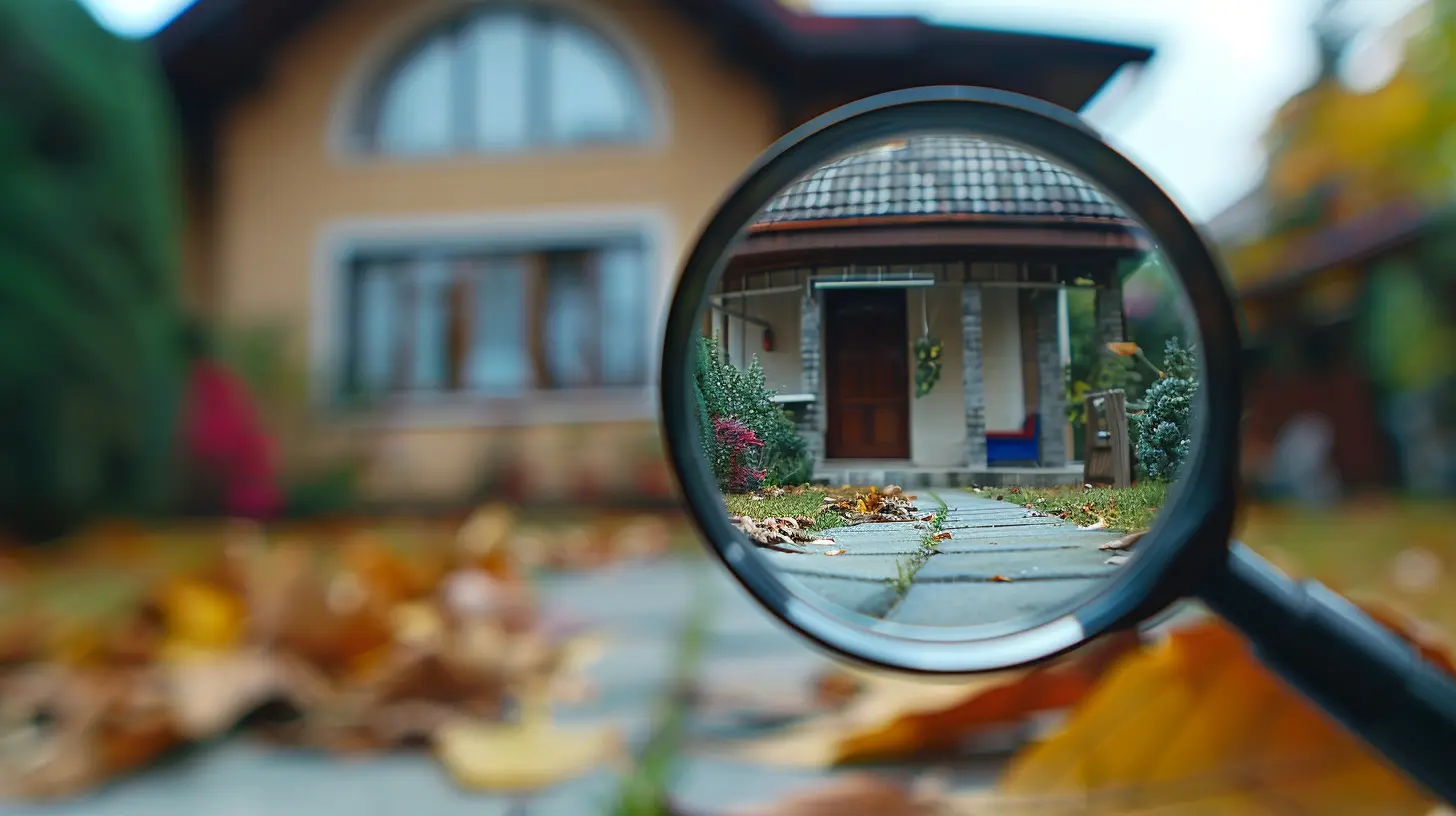Key Factors to Analyze Before Buying Investment Property
19 September 2025
Thinking about diving into real estate investing? Great choice. Real estate has built more wealth over time than just about any other asset class. But here’s the thing — not all investment properties are created equal. Some can turn into cash cows, while others are ticking time bombs wrapped in a pretty listing photo.
Before you jump in and sign that dotted line, hold up. You need to understand the big picture and the tiny details. Investing in property isn’t just about location and curb appeal... It’s also about numbers, timing, and yes — even your gut feeling.
So, let’s get into the nitty-gritty.
Why Buying Investment Property Isn't Just Another Purchase
Buying an investment property is not like buying your dream home. You're not picking out granite countertops or falling in love with a bay window. You're buying an asset — something that should make you money.It’s a business move, plain and simple.
That means you need to be cold, calculated, and brutally honest with yourself during the process. Like any investment, real estate comes with risks. But those risks can be managed — if you know what to look out for.
1. Location, Location... Yeah, You Know the Rest
Let's get the obvious one out of the way first: location is everything. But not just in the cliche sense. You need to think beyond just “nice neighborhood” or “close to downtown.”Here’s what you really should be asking:
- Is the area growing or declining?
- What's the job market like?
- Are people moving in or moving out?
- Are there plans for new developments, schools, or transit hubs?
- What’s the crime rate?
Think of location like the soil a tree grows in. You can plant the best seed in the world, but if the soil’s bad, guess what? No tree.
Tip: Look into secondary or up-and-coming markets. They're often more affordable and can offer better ROI as they grow.
2. Know Your Numbers Inside and Out (Seriously)
Buying a property without running the numbers first is like going skydiving without checking your parachute.Here are the key calculations you’ll want to get comfortable with:
Cash Flow
This is the money you pocket each month after all expenses (mortgage, taxes, maintenance, etc.). If this number’s negative, you're essentially subsidizing your tenant’s rent. Not cool.Formula:
Monthly Rental Income - Total Monthly Expenses = Cash Flow
Cap Rate
Short for Capitalization Rate, this helps you compare properties. The higher the cap rate, the better the potential return. But beware — high cap rates can mean higher risk too.Formula:
Net Operating Income / Purchase Price x 100
ROI (Return On Investment)
What kind of return are you actually getting from your money? This helps you measure performance and decide if it's even worth it.Formula:
Annual Return / Total Investment x 100
Gross Rent Multiplier (GRM)
This one’s super simple and gives you a high-level view of valuation.Formula:
Purchase Price / Annual Rental Income
Bottom line? If you don't know your numbers, you're flying blind.
3. Understand the Local Rental Market
Before you buy anything, you need to know if people even want to rent in that area. And not just rent — rent for the amount you’re hoping to charge.Here’s what to look for:
- Average rent prices
- Vacancy rates
- Renter vs. owner-occupied percentages
- Local rental laws (some places have strict rent control)
Sites like Zillow, Rentometer, and Craigslist can help you get a pulse on the market. And don’t be afraid to actually talk to property managers or landlords in the area — real-world feedback beats online research every time.
4. Property Condition and Age
Let me put it this way — that “charming fixer-upper” might also be a full-blown money pit.Here’s what you want to inspect (ideally with a professional):
- Roof (replacement costs can be brutal)
- Plumbing and electrical systems
- Foundation issues
- HVAC age and condition
- Mold, water damage, or pest signs
Older properties can offer character and good value, but you need to budget for repairs and renovations. Always pad your repair budget. If you think it'll cost $20k to fix, plan for $30k. Because — spoiler alert — it almost always goes over.
5. Financing: What Are You Working With?
How you finance the property can make or break your investment. So, what’s your plan?- Conventional loans
- FHA loans (if you're house hacking)
- Commercial loans (for multi-units)
- Hard money loans (for flips)
- Private money or partnerships
Remember: interest rates, down payment requirements, and lender fees can vary big time depending on the loan type and your personal credit profile.
Tip: Work with a mortgage broker who understands real estate investing. They'll help you find better loan products than just walking into your local bank.
6. Property Management: Who’s Running the Show?
Let’s be real — not everyone wants to (or should) be a landlord. Late-night plumbing issues, tenant drama, and maintenance emergencies are not everyone’s cup of tea.So, ask yourself:
- Will you manage it yourself?
- Will you hire a property manager?
- Can the property support the cost of professional management (usually 8-12% of monthly rent)?
Even if you're planning to self-manage, factor in the time commitment. Your investment shouldn't become your second job unless that’s what you’re going for.
7. Exit Strategy: How Will You Profit?
A lot of people buy investment properties without ever thinking about the endgame.Are you planning to:
- Rent it out long-term?
- Flip it in a few years?
- Use it as a short-term rental (Airbnb)?
- 1031 exchange into a bigger property?
- Sell during a market peak?
Each strategy has different tax implications and risk levels. Make sure your plan fits with your broader financial goals.
And always have a backup plan. What if the rental market dips? What if you can’t sell when you want to? Flexibility is your friend.
8. Legal and Tax Considerations
Yeah, we know... this part isn’t sexy. But ignoring legal and tax stuff can bite you hard.Things to consider:
- Asset protection: Should you buy in your name or through an LLC?
- Local zoning laws: Can you legally rent the property out?
- Landlord-tenant laws: Every state plays by different rules
- Taxes: Property tax, income tax, capital gains... it adds up fast
Hiring a real estate-savvy CPA and possibly a lawyer is one of the smartest moves you can make as a new investor.
9. Investment Type: Residential vs. Commercial vs. Short-Term
Each type of investment property has its own pros and cons. Here's the quick and dirty:Single-Family Homes
- Easier to finance- Simpler to manage
- Usually lower cash flow
Multi-Family (Duplex, Triplex, Fourplex)
- More cash flow potential- More tenants = more complexity
- Still qualify for residential loans
Commercial (5+ Units or Office/Retail)
- Higher returns, but higher risk- Financing is more complex
- Longer vacancies but longer leases
Short-Term Rentals (Airbnb)
- High income potential- Heavy management needs
- Subject to local bans and regulations
You’ve got to ask: what matches my skillset, time availability, and comfort level?
10. Emotional Check: Are You Mentally Ready?
This isn’t talked about enough, but it matters. Investing in property can be stressful. You'll face repairs, bad tenants, surprise costs, and market shifts.So, ask yourself:
- Can I handle stress and uncertainty?
- Am I willing to learn the game?
- Do I have the patience to see this through long-term?
Being a successful investor isn't about being fearless — it's about being prepared, confident, and resilient when stuff hits the fan.
Final Thoughts: Don’t Rush It
Look, buying investment property is one of the best moves you can make — if you do it smart. Rushing, skipping research, or letting emotions guide your decision is a fast track to regret (and empty pockets).Take your time. Run your numbers twice. Ask for help when you need it. If something feels off, there’s probably a reason.
Remember, in real estate investing, the money is made when you buy, not just when you sell.
So choose wisely.
all images in this post were generated using AI tools
Category:
Real Estate InvestingAuthor:

Angelica Montgomery
Discussion
rate this article
1 comments
Jett Ramos
Great insights! Thorough analysis leads to smarter investment decisions.
October 5, 2025 at 4:45 AM

Angelica Montgomery
Thank you! I'm glad you found the insights helpful for making informed investment decisions.


